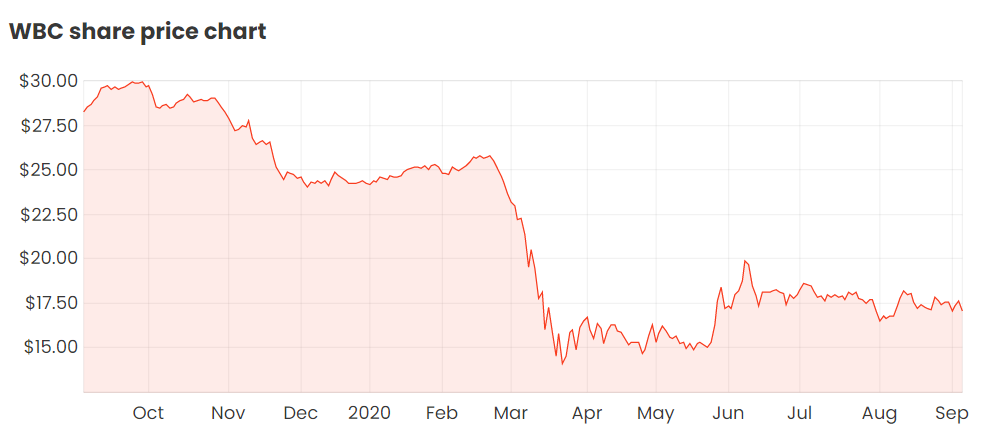Is the Westpac Banking Corp (ASX: WBC) share price worth buying today? It has certainly fallen a long way.
What’s going on with Westpac?

The Westpac share price has fallen by 28% since the start of the 2020. That’s a pretty hefty fall. When share prices fall a lot I think it could open up the opportunity for buying shares at much better value.
But a business is only good value if the underlying value hasn’t actually fallen by that much. A business can fall 20% and be expensive, a business can also rise 10% and be cheap.
So what about Westpac?
In the FY20 first half result we saw statutory net profit of $1.19 billion, down 62%. Cash earnings were $993 million, down 70%. Excluding ‘notable items’ cash profit was down 44%. A large part of this disappointing result was an impairment charge of $2.24 billion, including $1.9 billion of potential impacts from COVID-19.
The FY20 third quarter profit looked a bit better. It delivered unaudited statutory net profit of $1.12 billion and unaudited cash earnings of $1.32 billion. However, that result also included an impairment charge of another $826 million – further increasing provisions and provisioning cover.
These results show that the bank is struggling, but it continues to generate a quarterly profit, which is good for shareholders. But I wasn’t too surprised to see that Westpac decided not to pay an interim dividend. The decision had initially been deferred.
Short term pain, long term gain?
Businesses that have seen a heavy share price fall due to short term fears could be a long term opportunity. But it’s hard to know if Westpac is actually an opportunity. A key profit measure of bank profitability is the net interest margin (NIM), which tells investors how much profit it’s making on the money it lends out.
In the FY20 first half it had a NIM of 2.13%. In the third quarter it had a NIM of 2.05%. This suggests that longer term profitability could be challenged because of lower central bank interest rates as well as stiff competition. Banks face short term difficulties from COVID-19 and long term challenges from structural changes. The Westpac dividend may not recover to 2018 levels for a long time, if ever. Dividend payout ratios could be permanently lower.
I wouldn’t want to buy bank shares today. There are ASX dividend shares I’d much rather buy first like Washington H. Soul Pattinson and Co. Ltd (ASX: SOL).









